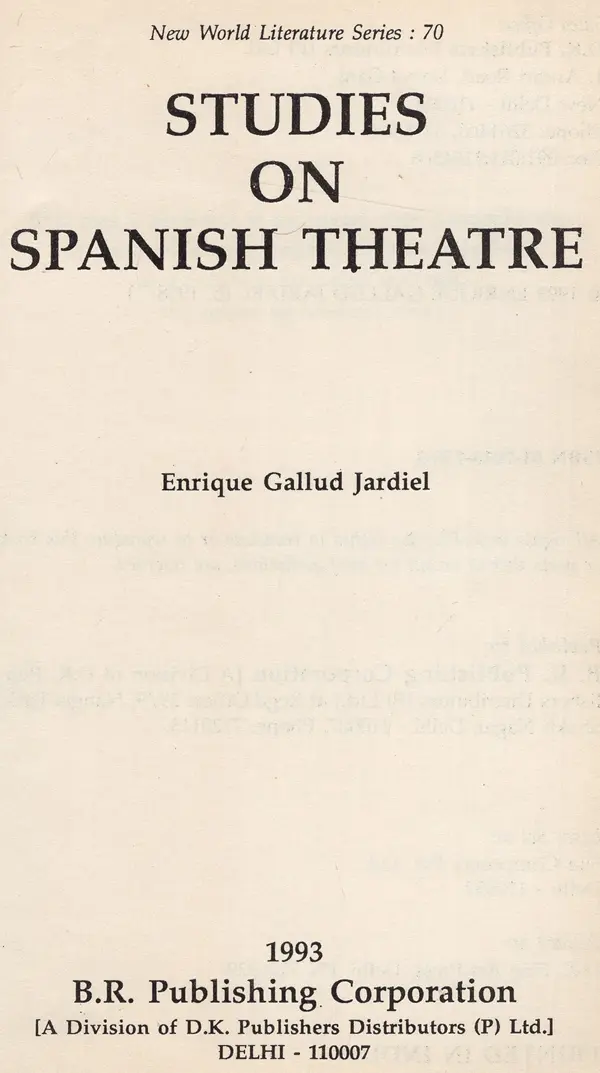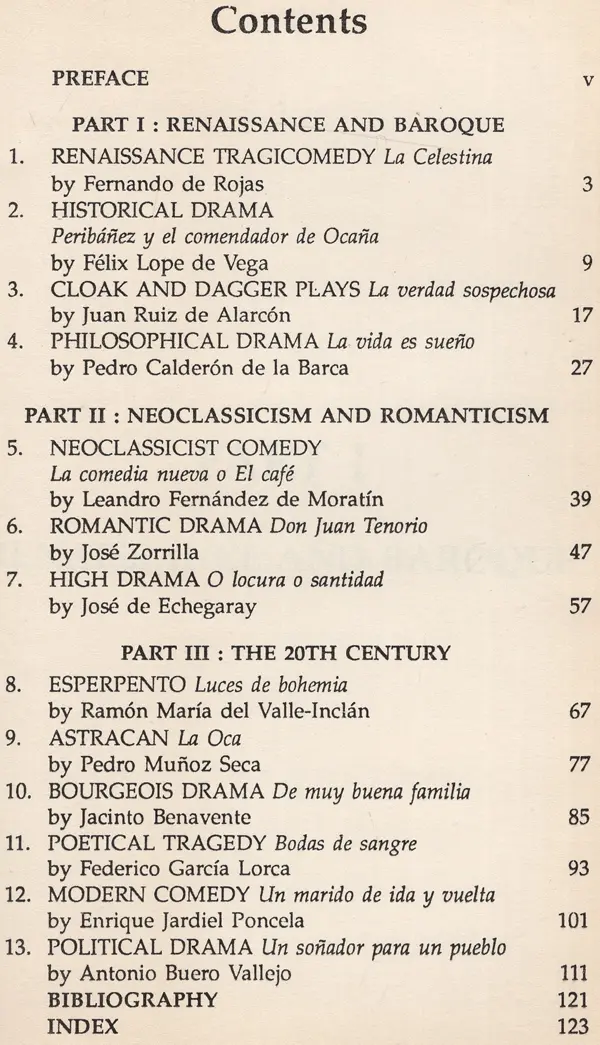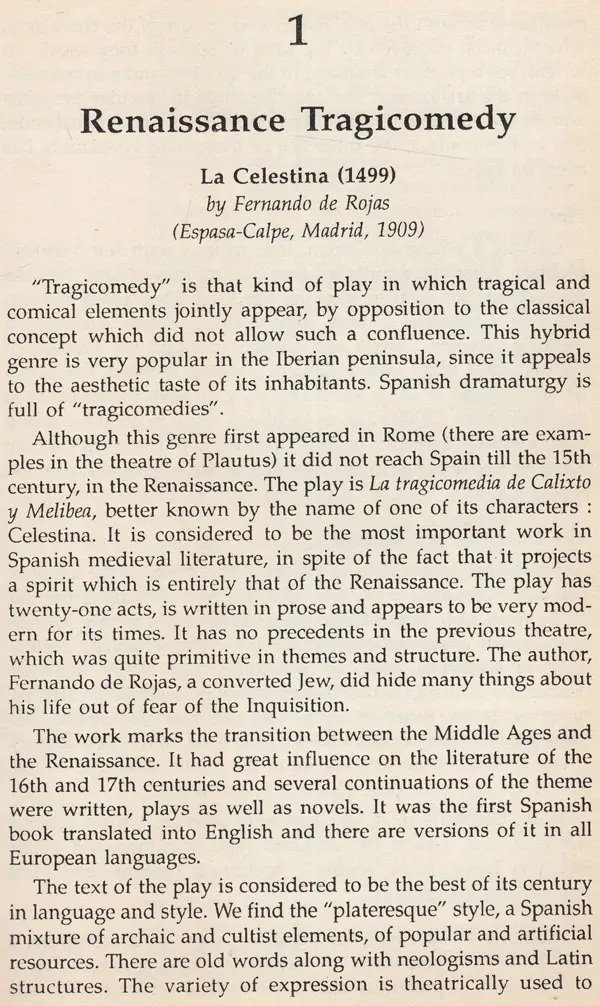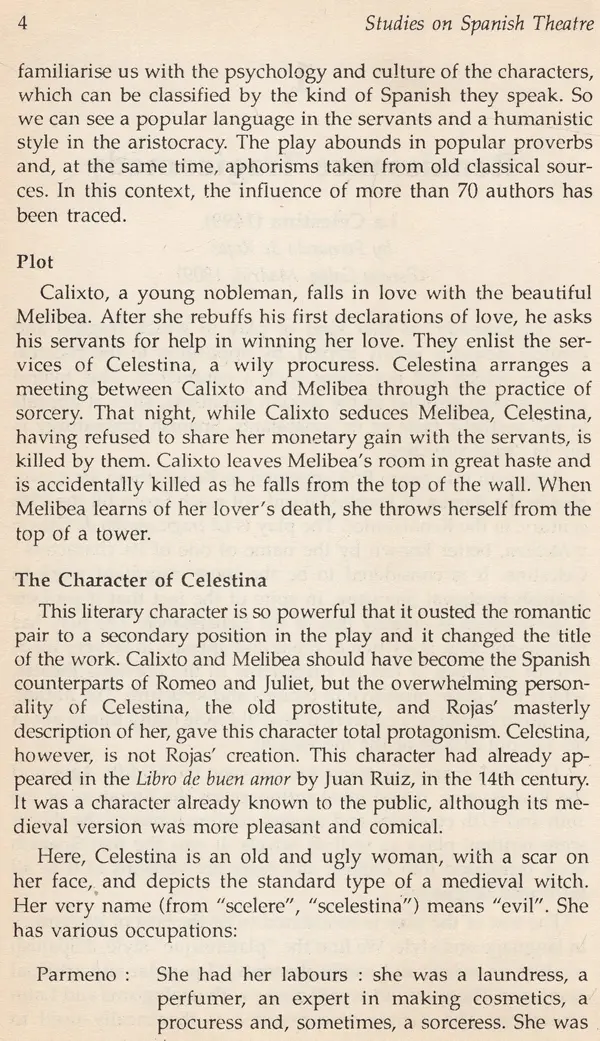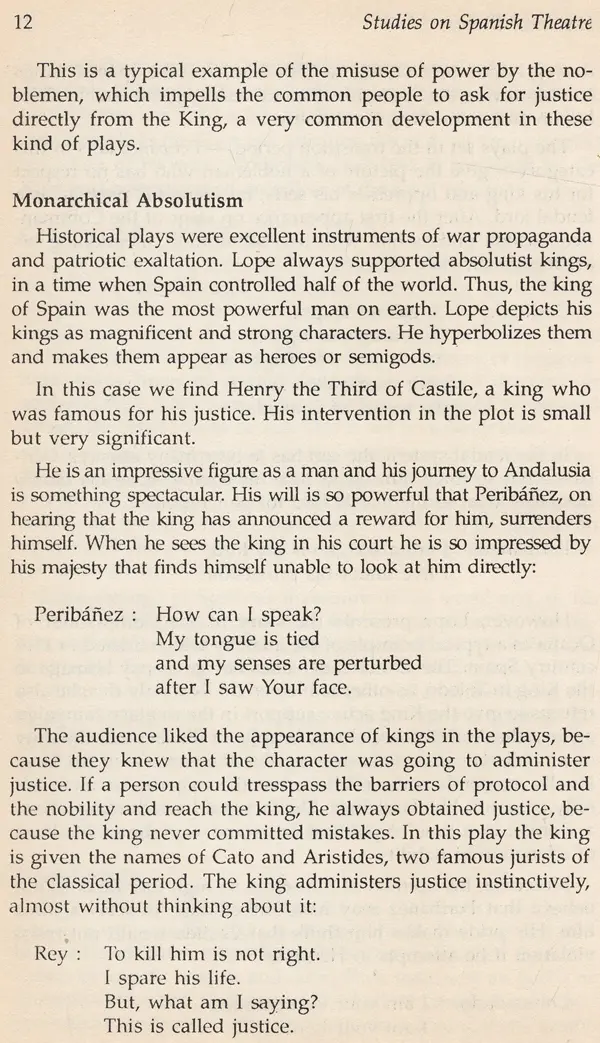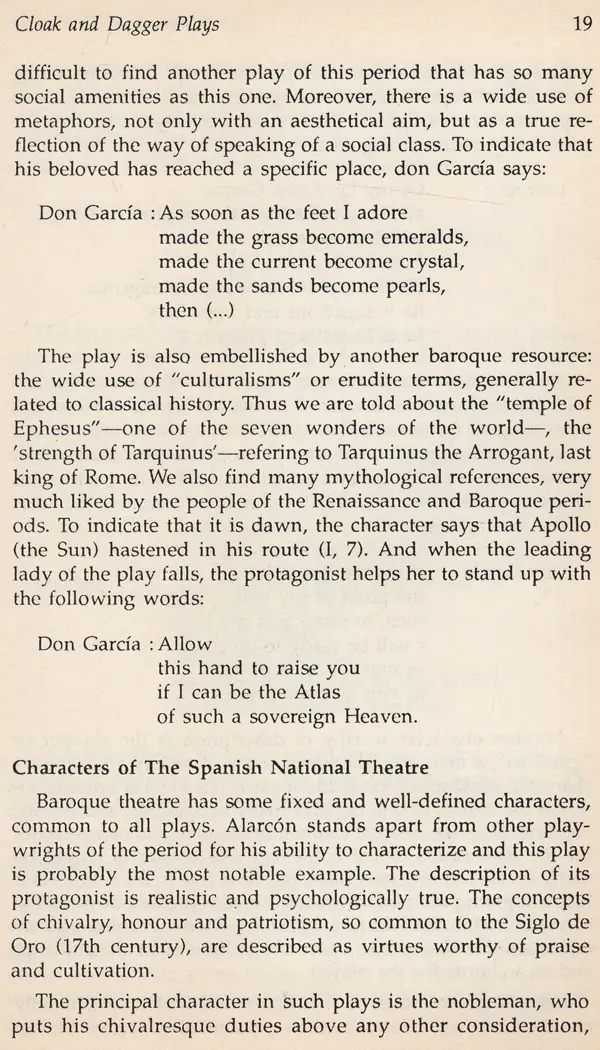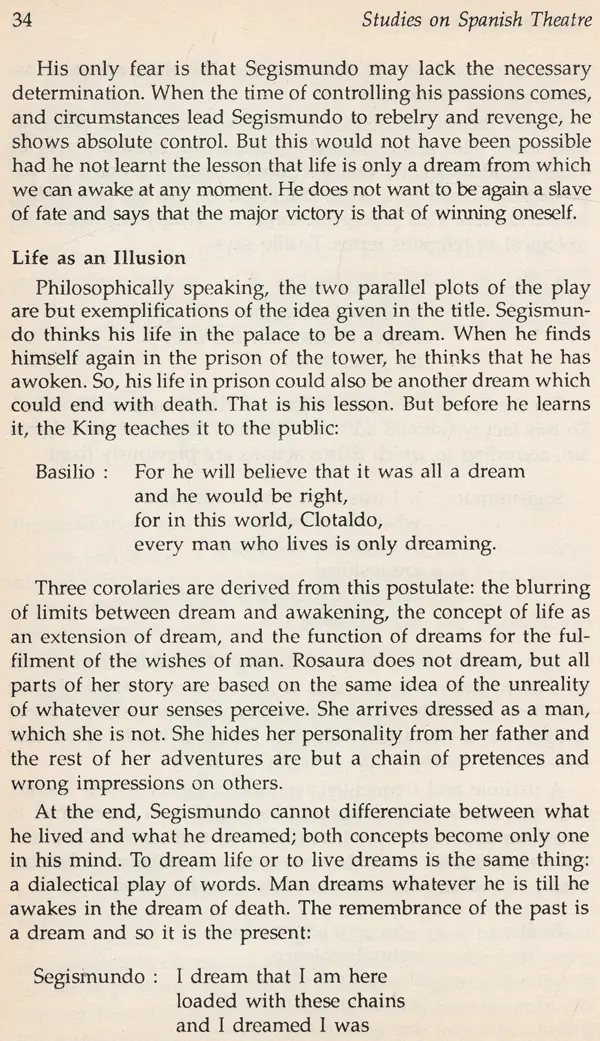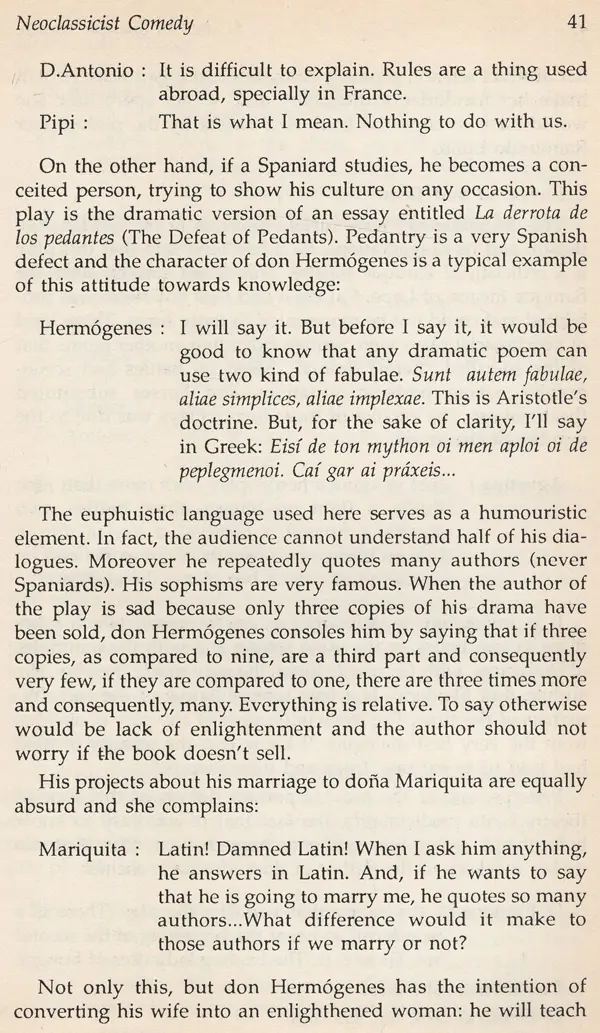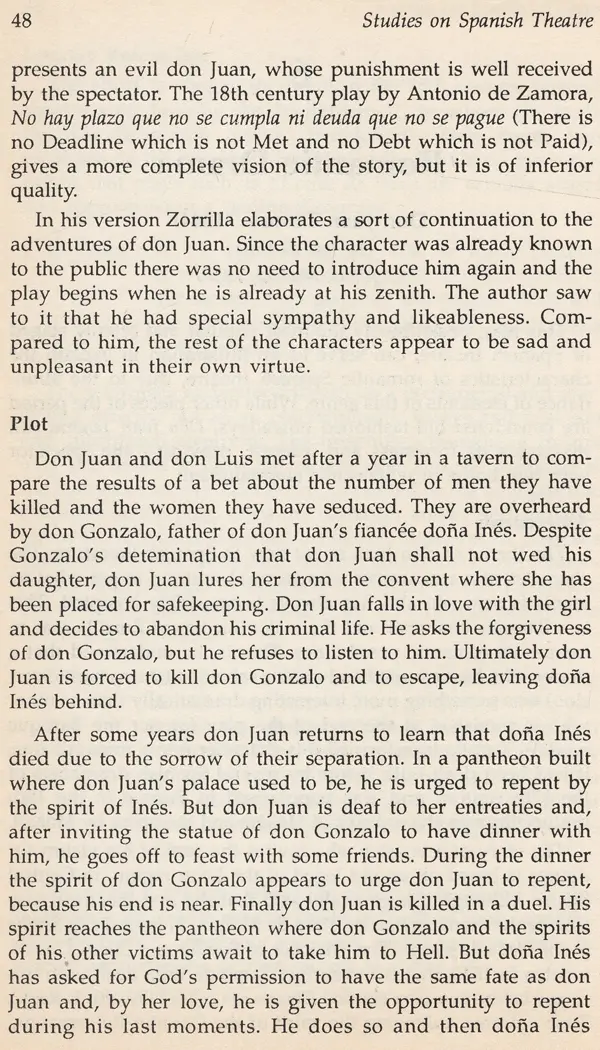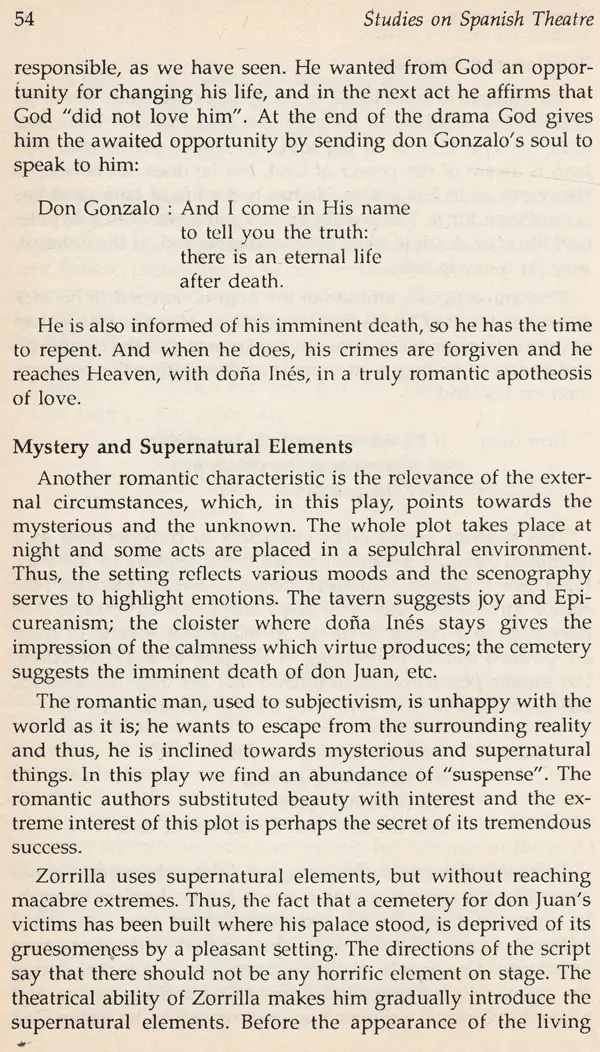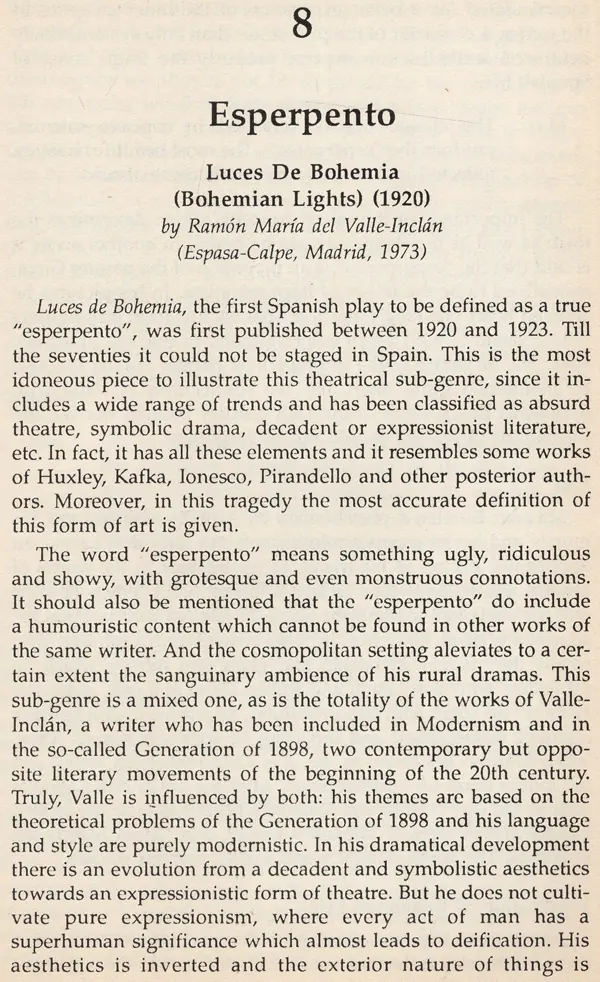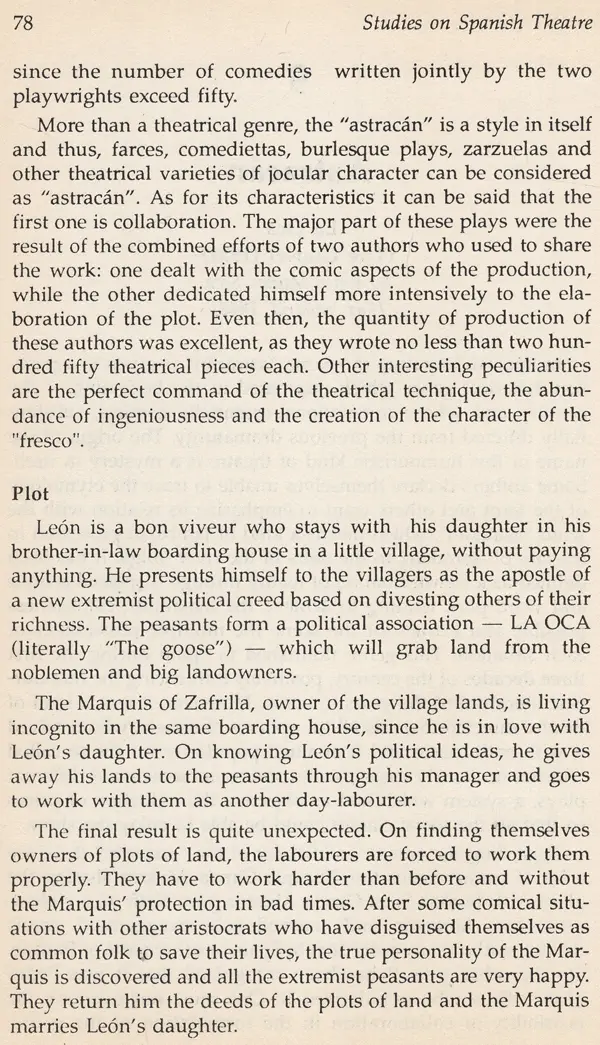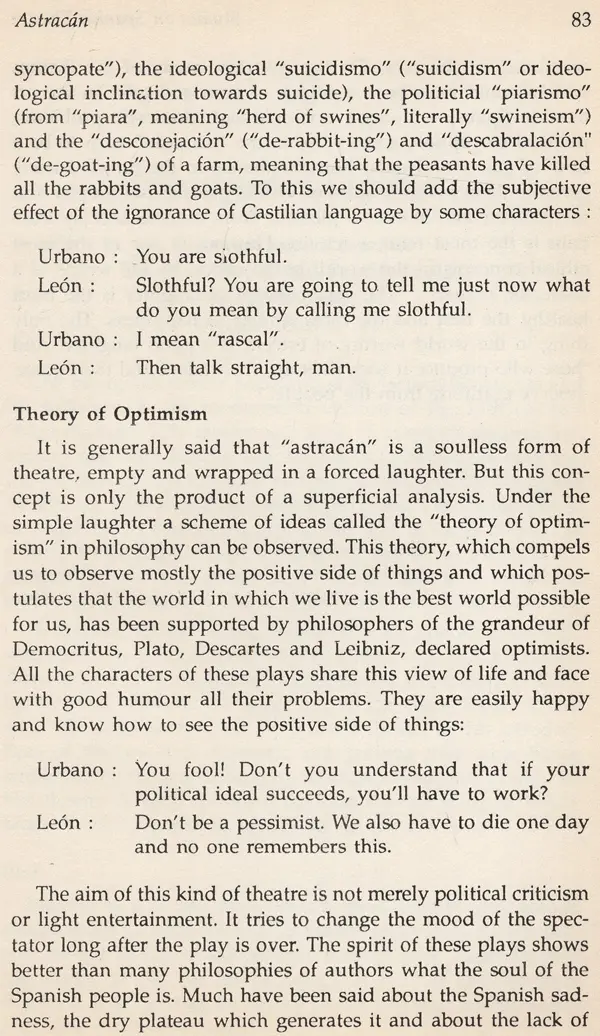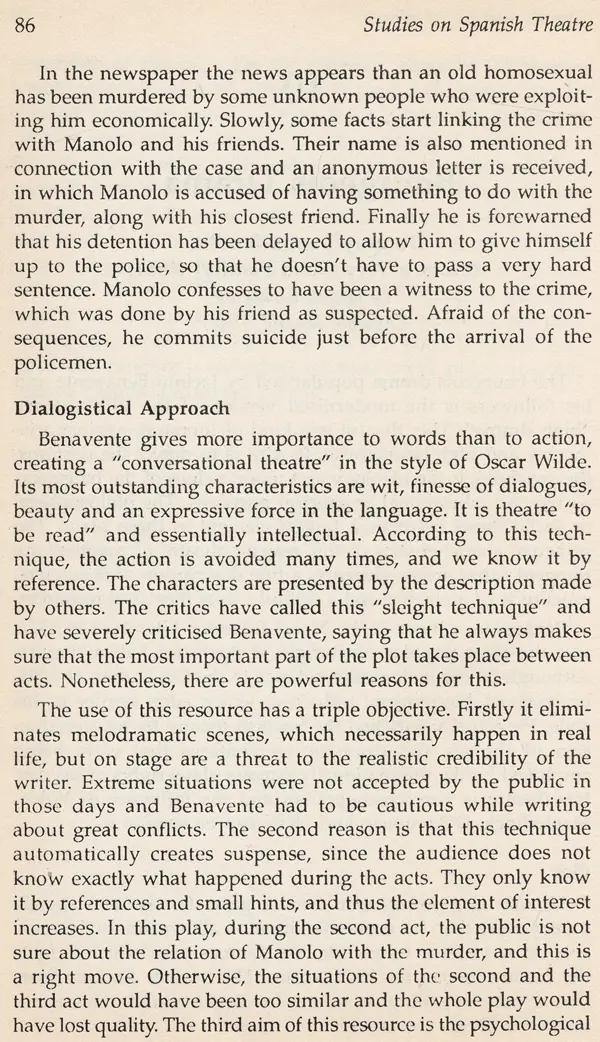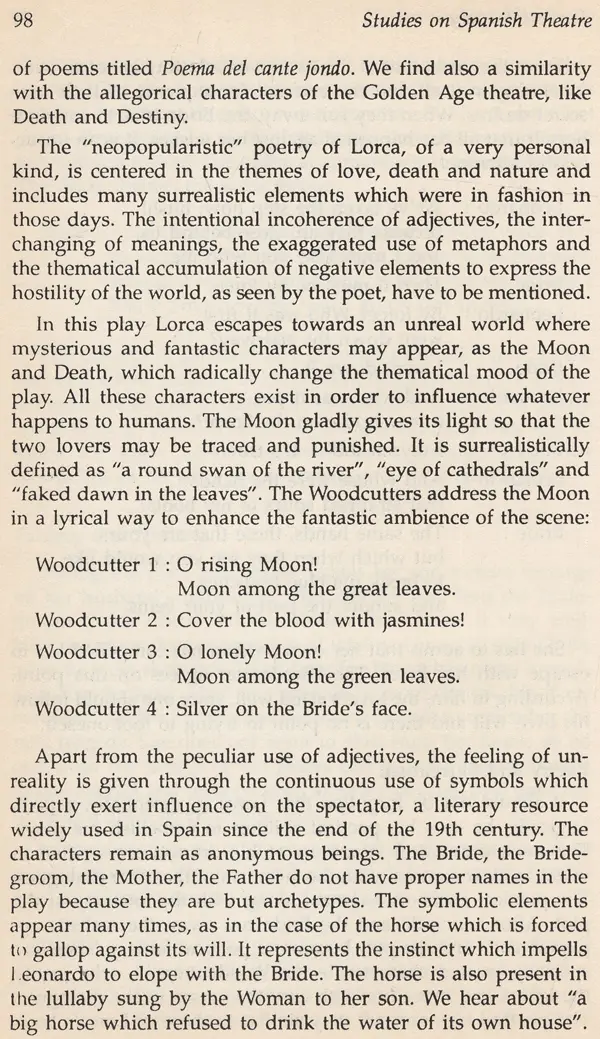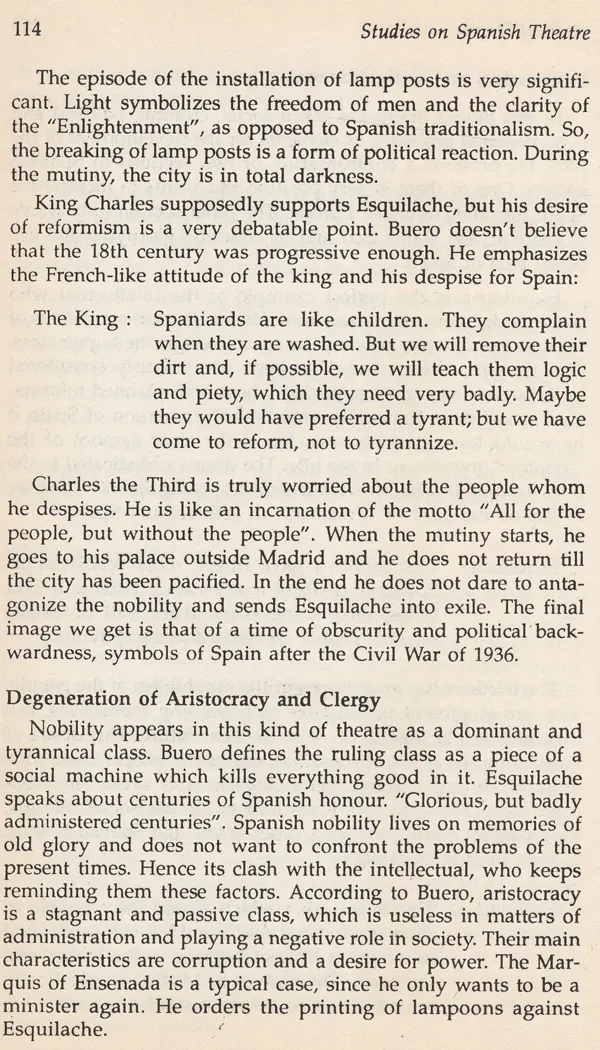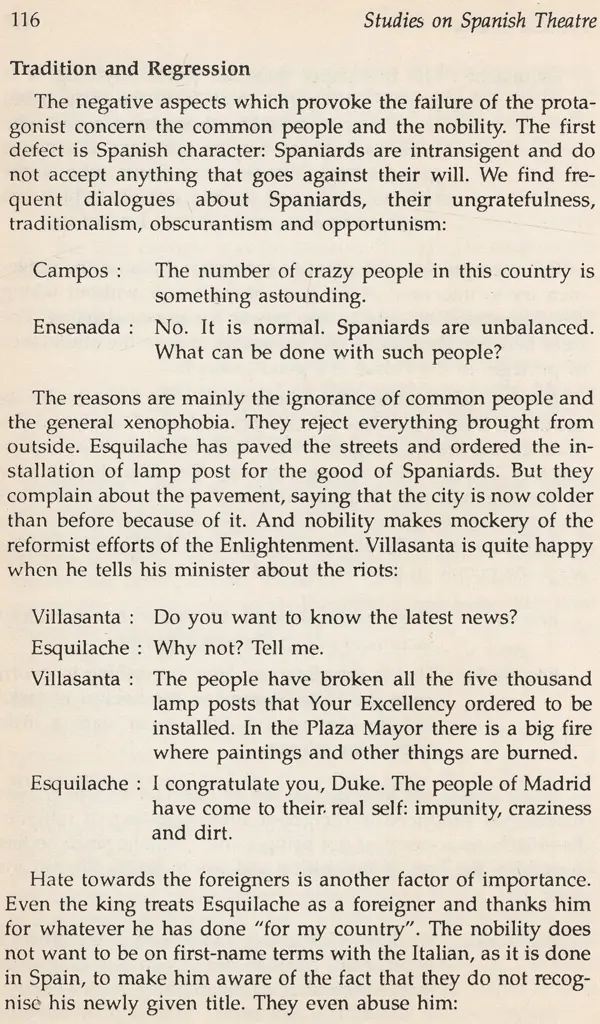
New World Literature Series: 70 Studies on Spanish Theatre (An Old & Rare Book)
Book Specification
| Item Code: | UAS098 |
| Author: | Enrique Gallud Jardiel |
| Publisher: | B.R. Publishing Corporation |
| Language: | English |
| Edition: | 1993 |
| ISBN: | 8170187583 |
| Pages: | 124 |
| Cover: | HARDCOVER |
| Other Details | 9.00 X 5.50 inch |
| Weight | 320 gm |
Book Description
Studies on Spanish Theatre is an aesthetic and critical vision of the rich Spanish theatre, aimed at the Indian reader, who is showing a growing interest in the Hispanic world. This book describes this genre from the Golden Age, when it appeared in all its splendour, as a proof of a high degree of culture. It is not only a useful book for the specialist but also a pleasant work, so that the average reader may come in contact with texts that available in India. are not The dramatic genre in Spain is immense, in quality and quantity. Instead of a mere list of names, titles and hasty critical judgements, the main theatrical genres have been selected, from the well- known (tragicomedy, poetic and political theatre) to those which are specially Spanish ("astracán", "esperpento"). In order to illustrate them the most representative authors have been chosen (from classicists like Lope de Vega and Calderón to vanguardists like Lorca), along with immortal and world famous works like Don Juan Tenorio or Life is a Dream.
Dr. Enrique Gallud Jardiel, born in Valencia (Spain) in 1958 and now an Indian citizen, is, at present, Associate Professor of Spanish and Chairperson of the Centre of Spanish Studies in the School of Languages, Jawaharlal Nehru University, which also happens to be his Alma Mater, from where he took the Master's and the Doctoral degrees, specialising in Spanish Baroque theatre. He is the Director of a theatre group which represents Spanish plays in the capital. Apart from many articles he is the author of the first bilingual Hindi Spanish, Spanish-Hindi dictionary and of a book on India in the Literature of Spain, published in the same series.
In the same way that Austria is known for its music, Russia for its novels, Germany for its philosophy and Holland for its paintings, Spain is famous for its theatre. The dramatic genre is the most outstanding in Spanish literature, in quality and quantity. This book presents this genre from the Golden Age, when it appeared in full splendour as proof of a high degree of culture. Spanish drama, variegated as it is, shows some fixed characteristics which make it different from other European styles. Firstly, its national approach has to be mentioned. Cosmopolitism rarely appears in it; this theatre is based on Spanish folk-lore, history, manners, ideas and all which constitutes the Hispanic ethos. This peculiarity has given it wide popularity among the heterogeneous audiences of Spain. The Spanish public was always composed of people from every strata of society, without any distinction. It never was conceived as a form of entertainment for a specific class (as it happened with the plays of Pierre Corneille or Oscar Wilde, for example). Another of its characteristics is the unorthodox mixture of tragedy and comedy, where classical norms were deliberatedly broken to suit the Spanish taste. The dynamism of the plots is another aspect deserving mention. Great emphasis is placed on the external action, as opposed to the introvert and psychological theatre of Ibsen or Strindberg. It may also be mentioned that the Spanish playwright is far more prolific than his counterparts in other countries. Moliere and Schiller obtained their well deserved fame with no more than twenty plays each. The Spanish average dramatist writes no less than two hundred works during his literary lifespan. This book aims to give to the Indian reader a panoramic view of Spanish theatre, which is, unfortunately, not fully known in India. To avoid a mere list of names, titles and hasty critical judgements, the most representative works of the principal dra matic genres have been selected for their study. Thus, the reader can get more valuable information about the most important plays, genres and authors. The critical analysis of each work serves to explain the artistic background where it was con ceived, the characteristics of the literary movement and, above all, the mentality of the people who enjoyed it.
**Contents and Sample Pages**
